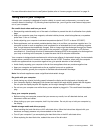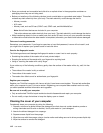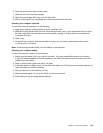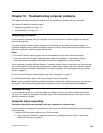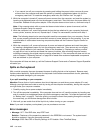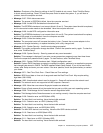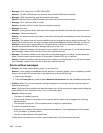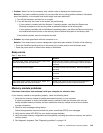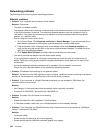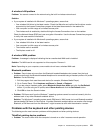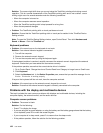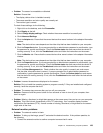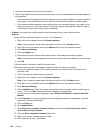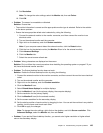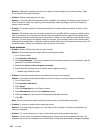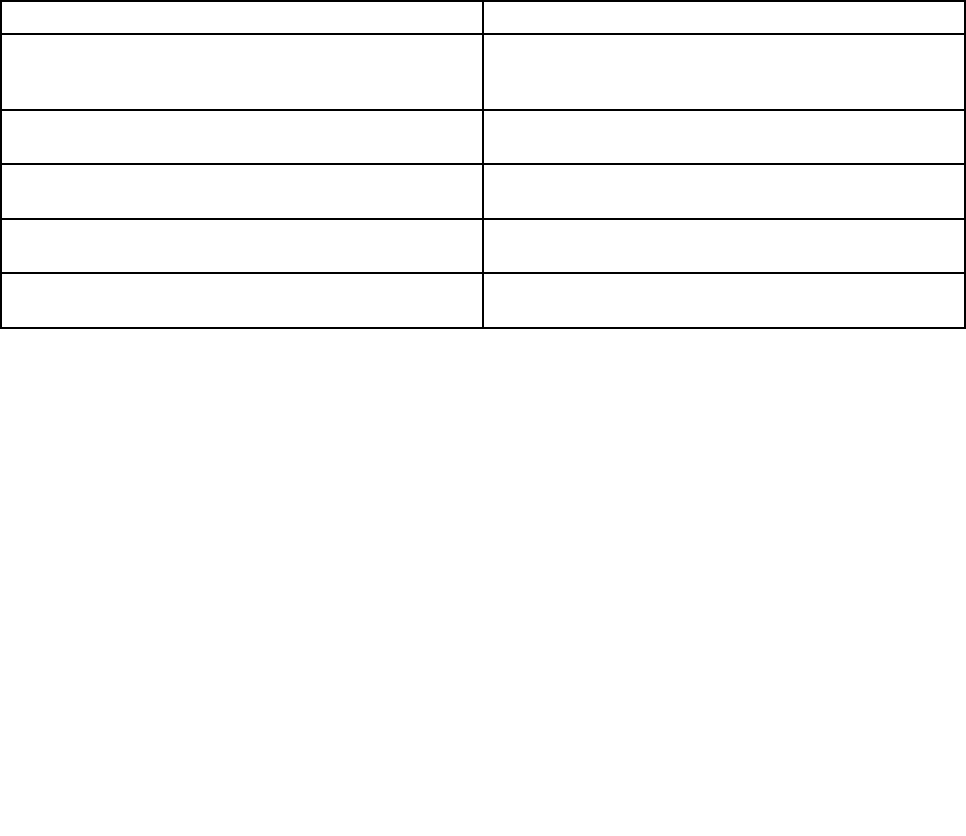
• Problem: When I turn on the computer, only a white cursor is displayed on a blank screen.
Solution: If you have modied a partition on your hard disk drive by using partition software, information
about that partition, or the master boot record might have been destroyed.
1. Turn off the computer, and then turn it on again.
2. If you still see only the cursor on the screen, do the following:
– If your system is installed with the Windows 7 operating system, use either the Rescue and
Recovery workspace or the recovery discs to restore the system to the factory state.
– If your system is installed with the Windows 8 operating system, use either the Remove everything
and reinstall Windows function or the recovery discs to restore the system to the factory state.
If the problem persists, have the computer serviced.
• Problem: My screen goes blank while the computer is on.
Solution: Your screen saver or power management might have been enabled. Do either of the following:
– Touch the TrackPoint pointing device or the touch pad, or press a key to exit the screen saver.
– Press the power switch to resume from sleep or hibernation.
Beep errors
Table 7. Beep errors
Problem
Solution
One short beep, pause, three short beeps, pause, three
more short beeps, and one short beep
Make sure that memory modules are installed correctly. If
they are, and you still hear the beeps, have the computer
serviced.
One long and two short beeps
The video function has a problem. Have the computer
serviced.
Four cycles of four short beeps
The Security Chip has a problem. Have the computer
serviced.
Five short beeps The system board has a problem. Have the computer
serviced.
Three short beeps, pause, one short beep, pause, one
more short beep, and three short beeps
Power off and remove device from ExpressCard Slot. If
the beeps persist, have the computer serviced.
Memory module problems
Print these instructions now and keep it with your computer for reference later.
If your memory module is not operating properly, check the following items:
1. Verify that the memory module is installed and seated correctly in your computer.
It might be necessary to remove all added memory modules to test the computer with only the
factory-installed memory modules, and then reinstall the memory module one at a time to ensure
a proper connection.
2. Check for error messages during startup.
Follow the appropriate corrective actions for power-on self-test (POST) error messages.
3. Verify that the latest UEFI BIOS for your model has been installed.
4. Verify the proper memory conguration and compatibility including the maximum memory size and the
memory speed.
5. Run diagnostic programs. See “Diagnosing problems” on page 115.
Chapter 10. Troubleshooting computer problems 119



